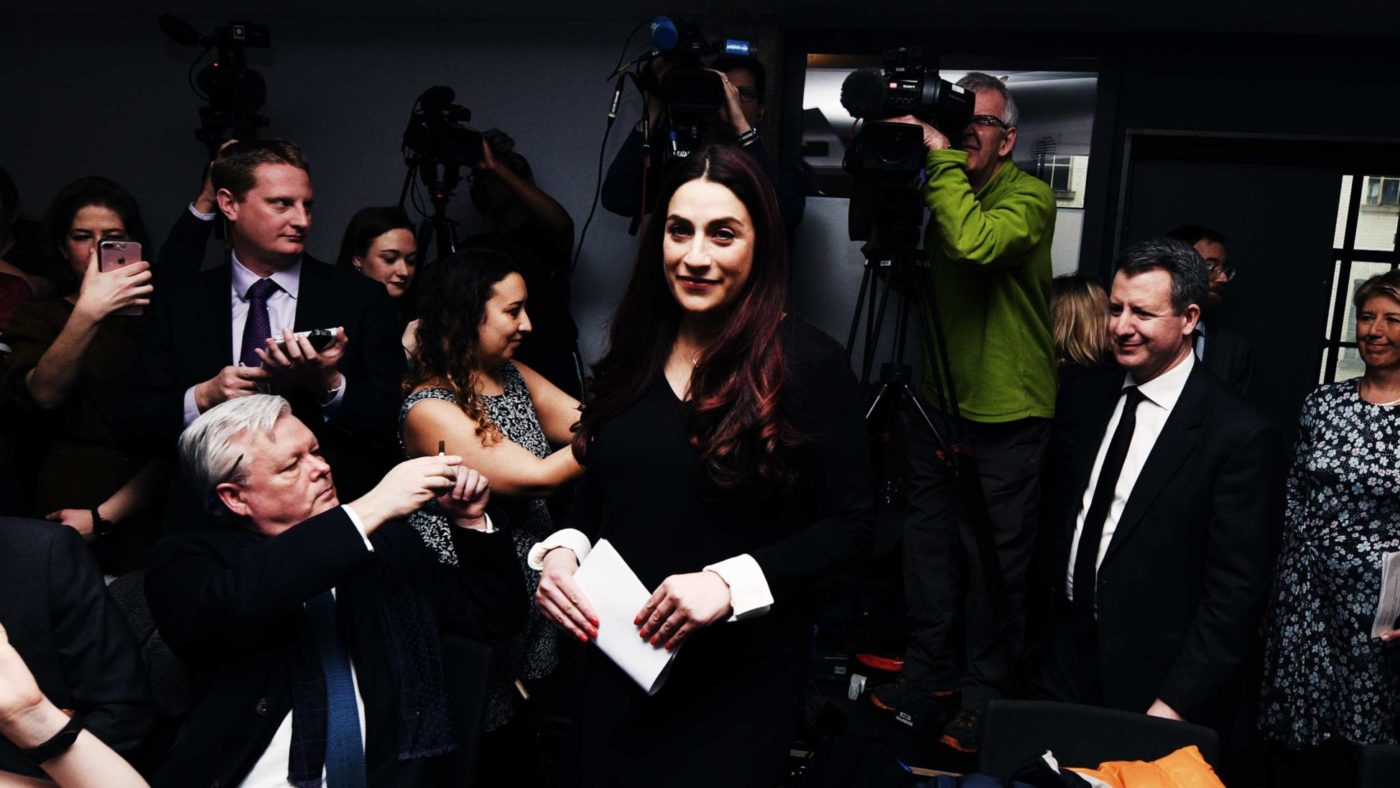Luciana Berger, MP for Liverpool Wavertree, said at the launch of the Independent Group of MPs this morning that she had become “embarrassed and ashamed” to remain in the institutionally anti-Semitic party that Labour has become. I have no idea whether the group will be electorally significant but those words encapsulate the problem that many people on the centre-left, within parliament and outside, now have.
For those who support liberal social reform and economic redistribution, Labour is an imperfect but historically vital vessel. Under the titular leadership of Jeremy Corbyn the party is instead – and I choose my words carefully and soberly – a force for atavism, bigotry and thuggery.
The splinter (to put it no higher) within the Labour Party is not a division just on policy, vital though such issues as Europe and national security are. It is a fundamental moral issue about openness and tolerance. I voted Labour even under Michael Foot, in the 1983 general election, despite having minimal sympathy for its prolix and absurd manifesto, dubbed by Gerald Kaufman “the longest suicide note in history”. While in a state of organisational chaos and political disrepute, the party at least retained a sense of its ideological roots, and Foot himself was a man of honour and principle. Long after his disastrous leadership he proved this by being a vigorous proponent of intervention in the 1990s to protect Bosnian Muslims against the depredations of Serb aggression.
With a good local MP, Meg Hillier in Hackney South and Shoreditch, I even managed to convince myself that Labour in 2017 was supportable at a constituency level. Yet it is now not a party like this at all. Under no sensible definition would the fairly anodyne statement of principles published by the independents this morning be considered out of line with progressive ideals. On such touchstone issues as Europe and immigration, Corbyn’s Labour Party is far to the right of, for example, The Times. But it is the the matter of anti-Semitism that exemplifies the state of the party.
I try to extricate personal feelings from political observations but this is visceral. Jews are a significant minority, but still a minority, even within the London Borough of Barnet, which decisively rejected Labour in municipal elections last year. In aggregate, British Jewry is a tiny proportion of the population. Yet its health and security are a test of a minimally tolerant society.
We are in the quite extraordinary position that anti-Semitism has become a central issue of British politics not because of genteel prejudice among shire Tories but because hostility to Jews is an ideological project of people who feel attracted to Corbyn’s cause. My own German ancestors got off the boat at Liverpool, settled there and flourished. Those who remained were far less fortunate.
The tortured modern history of Europe and the dominance of large tracts of it by differing forms of totalitarianism are the justification for the European Union and Nato. Both of these causes (especially the transatlantic alliance) have been advanced by Labour governments. With evasions but still unmistakably, Corbyn opposes both.
And more lamentable still, he regards Jews as some sort of interlopers in British society. Even knowing his history of dubious alliances as well as anyone, I still hadn’t grasped till the revelation of his infamous comments about Zionists and “English irony” the extent of the problem. Almost all British Jews (more than 85 per cent, according to a poll for the Jewish Chronicle by Survation) regard Corbyn as an anti-Semite. For any of his predecessors as Labour leader, let alone such figures as Harold Wilson and Tony Blair, the very question would have been unthinkable.
That’s Labour now, and it’s something new. When I came of voting age in the 1980s, I never supported the SDP despite having much sympathy for the views of Roy Jenkins. I believe it was misguided and destructive in seeking to supplant a system in which moderate and rational parties of the centre-left and centre-right vied for government and periodically alternated within it.
But those days are past. The independent group of MPs, with whom I have no formal connection, were right this morning to identity that that system is broken. On the most basic issues of governance – the constitutional constraints against arbitrary power, the full citizenship of everyone under the rule of law, and participation in a system of alliances to tame an anarchic international order – both main parties have abandoned the people they profess to serve. This may prove no more than a footnote in the history of British politics but a declaration of simple decency has merit regardless.
CapX depends on the generosity of its readers. If you value what we do, please consider making a donation.


